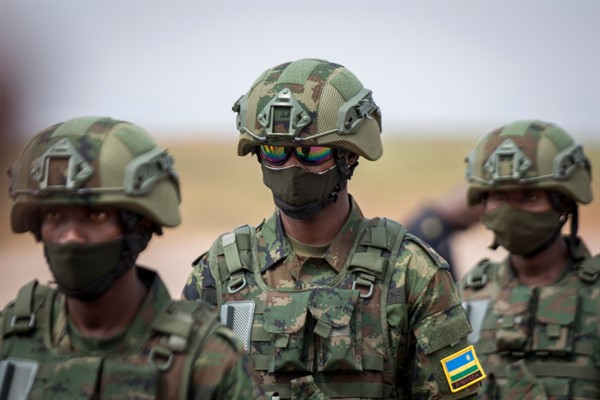A violent insurgency in Mozambique’s northernmost province of Cabo Delgado is sparking fears that the area could become the next frontier for global jihadism in Africa. In recent years, young men, sometimes carrying the black flag of the Islamic State, have swept hundreds of thousands of people off their land in the natural gas-rich province. The militants’ attacks have often been marked by beheadings and mutilations, including of children.
All told, more than 3,000 people have been killed in the violence. Mozambican security forces have struggled to contain the insurgents, who in late March stormed the northern town of Palma, the gateway to multibillion-dollar natural gas projects that were being constructed with the investment of major multinational oil firms like France’s Total. The attack came only a few weeks after the U.S. State Department formally designated “ISIS-Mozambique”—also known as Ansar al-Sunna or Ahlu Sunna Wa-Jama, though many locals refer to it as al-Shabab, an Arabic term meaning “the youth”—as a terrorist organization.
The ISIS threat on the continent is real. Already, the group’s local franchises in Nigeria and the Sahel have expanded rapidly in recent years, foreshadowing what might happen in Cabo Delgado. International pressure is thus mounting on the Mozambican government to deal with an insurgency that many analysts fear could have knock-on implications for the security of neighboring states, including South Africa. Officials there fear that Cabo Delgado could become a platform for South African extremists to gain experience before coming back to unleash attacks in major cities such as Johannesburg.

